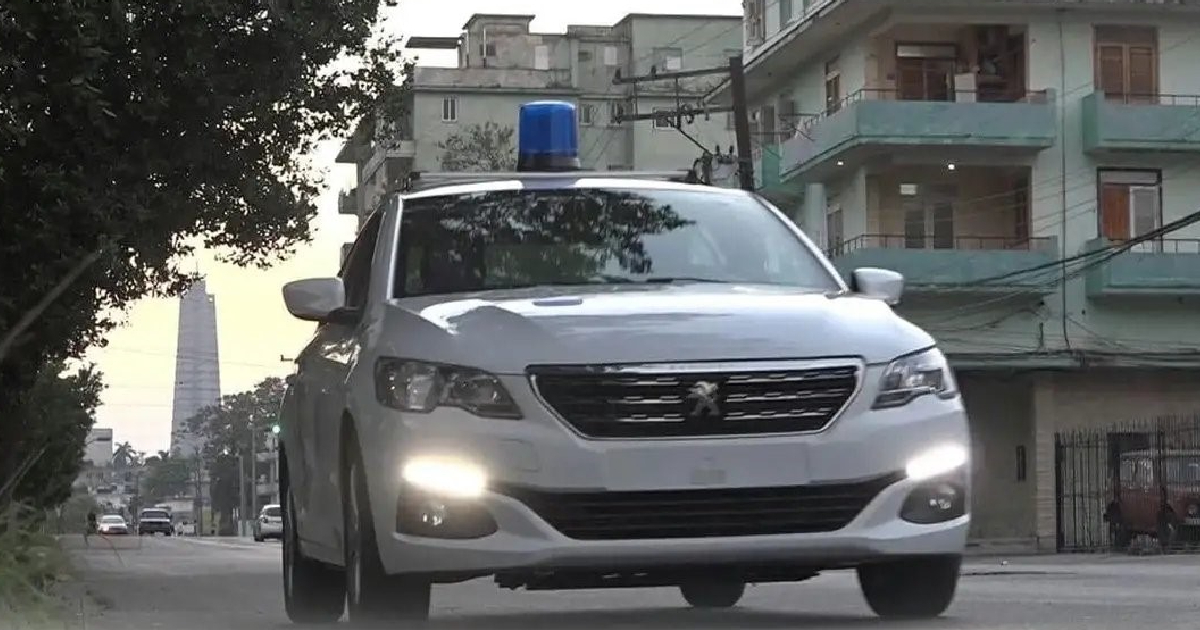Cuban police officers and lawyers will receive training at Russian universities, as revealed following a visit to the Eurasian nation by Cuba's Justice Minister, Oscar Manuel Silvera Martínez. "In Russia, Cuba's police and lawyers will be trained. This is crucial for strengthening our relations," the minister emphasized to the local media outlet, Russia News.
Silvera Martínez, who attended the St. Petersburg International Legal Forum, added that Cubans "will be trained in police work by you and will also gain jurisprudence knowledge at your universities." The Cuban government official stressed that these exchanges and training sessions help to enhance the interaction between the justice ministries of both countries and highlighted the similarity of many institutions, particularly legal ones.
In October 2023, Silvera and his Russian counterpart, Konstantin Chuychenko, signed a Memorandum of Understanding for collaboration in the legal sphere, as part of the former's visit to the Eurasian country. Although details of the agreement were not disclosed, the Cuban official met with specialists from the counterpart organization and the university regarding civil registry, notary services, and training, according to a note from Cuba's Ministry of Foreign Affairs (MINREX).
These alliances align with other agreements for police and legal training in countries with a history of repressing their citizens. Last March, deputies of Nicaragua's National Assembly approved with "urgent procedure" the so-called "Agreement between the Government of Nicaragua and the Government of Russia on cooperation in the field of retraining and professional improvement in the sphere of police activity." This agreement will be valid for 10 years, extendable for another decade, according to local media in the Central American country.
Security analysts consider it part of an advanced "intelligence and espionage system" that Russia is establishing within Nicaragua. In February of this year, both Cuba and Nicaragua received a visit from General Nikolai Patrushev, Secretary of the Security Council of Russia and advisor to Russian President Vladimir Putin. In Managua, Patrushev met with delegates from Bolivia, Cuba, Nicaragua, and Venezuela, countries with which the Russian government—according to the general—is willing to fully and integrally collaborate, especially in security matters.
In Cuba, criminal "phenomena" proliferate in society, while the police are used to suppress dissenting voices against the regime. "An effective administrative confrontation is not achieved in factories, warehouses, where, in most cases, the problems originate. The population's dissatisfaction persists, which shows that the work is still insufficient. Actions must be intensified, especially preventive ones," emphasized Cuban Prime Minister Manuel Marrero Cruz in Cienfuegos.
However, the population complains that officers, vehicles, and fuel appear only when it comes to repressing the people.
Key Questions on Cuba's Training Alliance with Russia
This section provides answers to some of the most pressing questions regarding Cuba's recent decision to send its police and lawyers for training in Russia.
Why is Cuba sending police and lawyers to train in Russia?
Cuba aims to strengthen its relations with Russia and improve the skills of its police and legal professionals through advanced training programs at Russian universities.
What kind of training will Cuban police and lawyers receive in Russia?
Cuban trainees will be educated in police work and jurisprudence, gaining knowledge from Russian experts and institutions.
How does this training alliance impact Cuba's internal security?
While the training aims to enhance professional capabilities, there is concern that it may also bolster repressive measures against dissenting voices within Cuba.
What other countries have similar agreements with Russia?
Nicaragua recently signed a similar agreement with Russia for police training, reflecting an ongoing trend of security cooperation among certain countries with Russia.
